The Scientific Association of Forensic Examiners 2016 Annual Conference
July 29 & August 26
All times listed are Pacific Daylight Time
Mark your calendars now for the SAFE™ Second Annual Forensic Document Examination Seminar on July 29 & August 26. The conference is being held on line with speakers located in many venues. Holding the conference on line allows attendees to view from their home, office, or any other location.
Since our members are located in 8 countries on 4 continents, holding the conference on line allows distant members to attend live without the need for many days of travel to a physical location.
The conference will be recorded for later viewing by those who register to attend.
Testimonials for the July conference
July 29 speakers
9:00 – 10:00 Dr. Larry Miller – OSAC Human Factors Committee & Photography for FDEs
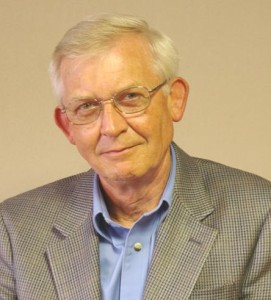 The presentation will focus on typical uses of photography for forensic document examiners, selection of camera equipment, lighting techniques, and using micro and macro photography to capture images.
The presentation will focus on typical uses of photography for forensic document examiners, selection of camera equipment, lighting techniques, and using micro and macro photography to capture images.
Larry S. Miller, Ph.D., CDE, D-BFDE is a Distinguished Professor and Chair of the Department of Criminal Justice & Criminology at East Tennessee State University in Johnson City. Dr. Miller is a forensic document examiner holding board certifications from NADE and the Board of Forensic Document Examiners. He is Director of the Graduate Certificate Program of Study in Forensic Document Examination at ETSU. He is the author or co-author of numerous scholarly articles and seven textbooks, many now in sixth and seventh editions, including Police Photography and Crime Scene Investigation.
Dr. Miller is a member of the Human Factors Committee of the Organization of Scientific Area Committees (OSAC). The committee is developing standards for human factors applicable to forensic document examiners. Dr. Miller will present an update on the status of the standards.
Dr. Miller is an expert photographer. He will instruct us on the best practices for photography for document examiners.
10:10 – 11:10 Doug Carner – The expert witness – Ethics, preparation and challenges
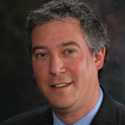 The expert witness – Expectations and preparation to avoid the common ethical errors that destroy credibility. Mr. Carner will cover real world examples and simple solutions that can save your case. He will also cover his specialty of digital forensics, and how it can be applied to win forensic document cases. This lecture will be fast paced, interactive, fact-filled and is intended for all skill levels.
The expert witness – Expectations and preparation to avoid the common ethical errors that destroy credibility. Mr. Carner will cover real world examples and simple solutions that can save your case. He will also cover his specialty of digital forensics, and how it can be applied to win forensic document cases. This lecture will be fast paced, interactive, fact-filled and is intended for all skill levels.
BIO: Doug Carner is an audio, video-image enhancement and authentication expert. His career spans thousands of cases in nearly every jurisdiction and is featured in legal and trade publications. He is industry certified, serves on forensic boards and committees, runs an international forensic laboratory, and creates the world’s most relied upon forensic video enhancement software. Mr. Carner is widely praised by both defense and prosecution for aiding in a quick settlement, and his expert opinions have helped to discredit junk science. In his spare time, he donates to innocence projects and the restoration of historical recordings.
Click here for more information about Doug.
11:20 – 12:20 John C. Edwards, Esq. – Managing High Conflict Personalities
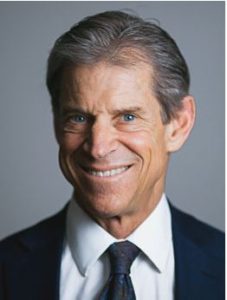 After practicing law as a litigator for many years, John Edwards began his mediation practice in 2002. Since then he has successfully mediated hundreds of cases including commercial and residential real estate matters, professional malpractice, personal injury, employment disputes, probate and business disputes.
After practicing law as a litigator for many years, John Edwards began his mediation practice in 2002. Since then he has successfully mediated hundreds of cases including commercial and residential real estate matters, professional malpractice, personal injury, employment disputes, probate and business disputes.
John is affiliated with West Coast Resolution Group in San Diego, California. He earned his J.D. from the University of San Diego Law School and received his mediation training at Harvard Law School. He received additional training in working with high conflict personalities with the High Conflict Institute. He subsequently began presenting with Bill Eddy at High Conflict Institute seminars and co-taught the Psychology of Conflict with Bill Eddy at the Strauss Institute at Pepperdine University where he is an adjunct professor. He frequently guest lectures at California Western Law School and Thomas Jefferson Law School. John also has taught the High Conflict Personality theory for the Advanced Mediation Training Program at the National Conflict Resolution Center, as well as in many seminars given to many diverse groups including law students, lawyers, mediators, commercial and residential real estate agents and brokers, and community association managers
12:20 – 1:20 – Lunch
1:20 – 2:20 Dave Zweig – Examination of ink and photocopies using the microscope
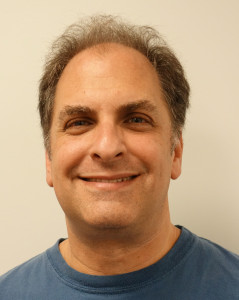 Mr. Zweig founded Zarbeco, LLC in 2001 to commercialize the then newly developed USB imaging technology, including USB cameras and microscopes. The MiScope handheld digital microscope was introduced in 2004. Zarbeco was one of the first companies to offer a compact USB microscope with IR and UV illumination, and continues to develop products that cater to the document examination community.
Mr. Zweig founded Zarbeco, LLC in 2001 to commercialize the then newly developed USB imaging technology, including USB cameras and microscopes. The MiScope handheld digital microscope was introduced in 2004. Zarbeco was one of the first companies to offer a compact USB microscope with IR and UV illumination, and continues to develop products that cater to the document examination community.
Dave Zweig has a Bachelors and Masters degree in Optics from the Institute of Optics at the University of Rochester. He spent 10 years working for a defense contractor in the area of large space optics, including extensive involvement with NASA’s Chandra X-Ray Telescope.
2:30 – 3:20 Joe Barabe – Application of Microscopes for FDEs
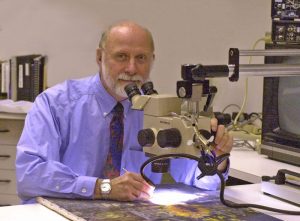 Microscopes of many kinds are important tools in all fields of forensic science, including forensic document examination. This talk will discuss microscopy basics: how to choose it and use it. Some elementary theory will be discussed, but emphasis will be on practical matters such as optimizing resolution, calibrating the instrument and capturing the resulting images. Also, the various kinds of microscopes will be surveyed as to appropriate use and advantages and disadvantages.
Microscopes of many kinds are important tools in all fields of forensic science, including forensic document examination. This talk will discuss microscopy basics: how to choose it and use it. Some elementary theory will be discussed, but emphasis will be on practical matters such as optimizing resolution, calibrating the instrument and capturing the resulting images. Also, the various kinds of microscopes will be surveyed as to appropriate use and advantages and disadvantages.
Bio
Joseph G. Barabe is Senior Research Microscopist at Barabe & Associates LLC, at which he does consulting in art, document and historical objects materials analyses.
He also has a long-standing interest in printing process identification and other aspects of forensic document examination. His more important projects include examination of the ink on the Gospel of Judas for the National Geographic Society, the Archaic Mark forgery for the University of Chicago, and the Clementine Hunter forgery case for the FBI.
He has published in scholarly journals of several disciplines. He also teaches workshops in Artist Pigment Identification, Printing Process Identification, Microscopy for Forensic Document Examiners, and Scientific Imaging and Photomicrography at the Hooke College of Applied Sciences in Westmont, IL.
He had the good fortune to study chemical microscopy under the tutelage of Dr. Walter C. McCrone, the founder of McCrone Associates, where Barabe was employed for 24 years as Senior Research Microscopist and Director of Scientific Imaging. He also studied chemistry under Professor Bill Mikuska at Triton College.
3:40 – 4:40 Ann Mahony – Electronic Signatures – The Future is Upon Us
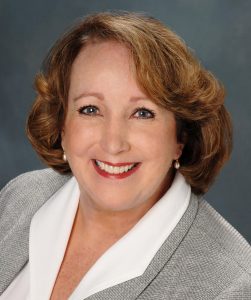 In today’s digital world, customers expect and demand instant access to the information they need. This includes the ability to sign, send and store contracts via mobile platforms. Millennials and Gen Z will be buying their homes, cars, and more via mobile devices. Early signature software attempted to capture a visual/digital image of an actual signature. Today, signature software is light years beyond the beta models, and embedded with multiple layers of security. Comcast, LinkedIn, Sony, Hewlett-Packard, Yahoo, Expedia, Salesforce, Prudential, McKesson, and others are already on board, claiming the software is fast, convenient, secure, and easy to use. DocuSign, the leader in signature software, has a standing guarantee to represent any of their digital signatures in court. Document examiners cannot afford to be left behind when it comes to understanding this new technology. Come discover what the buzz is all about.
In today’s digital world, customers expect and demand instant access to the information they need. This includes the ability to sign, send and store contracts via mobile platforms. Millennials and Gen Z will be buying their homes, cars, and more via mobile devices. Early signature software attempted to capture a visual/digital image of an actual signature. Today, signature software is light years beyond the beta models, and embedded with multiple layers of security. Comcast, LinkedIn, Sony, Hewlett-Packard, Yahoo, Expedia, Salesforce, Prudential, McKesson, and others are already on board, claiming the software is fast, convenient, secure, and easy to use. DocuSign, the leader in signature software, has a standing guarantee to represent any of their digital signatures in court. Document examiners cannot afford to be left behind when it comes to understanding this new technology. Come discover what the buzz is all about.
Bio
Board Certified and court qualified, handwriting and forgery expert Ann Mahony has been testifying in the field of questioned documents for over two decades in Federal and Superior Courts. Her work includes examining wills and trusts, altered medical and insurance records, anonymous letters and hate mail, real estate and tax matters, passport and customs documents, marriage and birth certificates, and numerous documents for banks and financial institutions. In addition, she assists retail and commercial enterprises with the escalating problem of internal employee theft. Clients include Bank of America, Federal Express, Hewlett-Packard, Coldwell Banker, Chicago Title, State Farm, Kaiser Permanente, Macy’s, Eddie Bauer, Montgomery Ward, and others, and major law firms worldwide.
August 26 speakers
9:00 Thomas Spahn – privilege and confidentiality
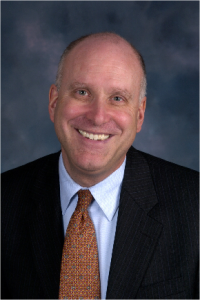 Tom Spahn (a partner in the Northern Virginia office of McGuire Woods) will discuss lawyers’ duty of confidentiality, lawyers’ responsibility to assure that those working with them comply with those confidentiality duties, and the attorney-client and work product implications of lawyers and those working with them obtaining and disclosing confidential client information.
Tom Spahn (a partner in the Northern Virginia office of McGuire Woods) will discuss lawyers’ duty of confidentiality, lawyers’ responsibility to assure that those working with them comply with those confidentiality duties, and the attorney-client and work product implications of lawyers and those working with them obtaining and disclosing confidential client information.
Bio:
Thomas E. Spahn practices as a commercial litigator with McGuireWoods in Tysons Corner, Virginia. Tom was selected as the 2013 metro-Washington DC “Lawyer of the Year” for “Bet the Company Litigation” by The Best Lawyers in America (Woodward/White, Inc.). He has served on the ABA Standing Committee on Ethics and Professional Responsibility, and is a Member of the American Law Institute and a Fellow of the American Bar Foundation. Tom has written extensively on attorney-client privilege, ethics and other topics, and has spoken at over 1,500 CLE programs throughout the U.S. and in several foreign countries. Through links on his website bio, Tom has made available to the public: his summaries of over 1,600 Virginia and ABA legal ethics opinions, organized by topic; a 300 page summary of his two-volume 1,500 page book on the attorney-client privilege and work product doctrine; over 750 weekly email alerts about privilege and work product cases; materials for thirty ethics programs on numerous topics, including approximately 7,000 pages of analysis. Tom graduated magna cum laude from Yale University and received his J.D. from Yale Law School.
10:10 Josh King – Ways to become comfortable with on-line feedback
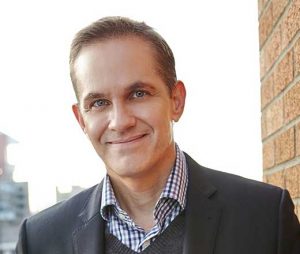 In this webinar, Josh King, Chief Legal Officer for Avvo, will discuss ways to help lawyers and law firms get comfortable with the rapid proliferation of online feedback and the most effective – and ethical – ways to respond.
In this webinar, Josh King, Chief Legal Officer for Avvo, will discuss ways to help lawyers and law firms get comfortable with the rapid proliferation of online feedback and the most effective – and ethical – ways to respond.
You will learn:
– The spread of online feedback via social media and review sites, and the importance of this trend to professional services and reputation
– Why suing for defamation is the technique of last resort
– Avoid violating the ethics rules around misleading advertising and attorney-client confidences when responding to online feedback
Bio:
Josh King is the Chief Legal Officer for Avvo, the web’s largest and most heavily-trafficked consumer legal destination. He is responsible for Avvo’s legal, government relations, and customer service functions. He is also a frequent writer and speaker on interactive media and professional ethics issues. Prior to joining Avvo in 2007, Josh spent over a decade in the wireless industry, in a mix of legal and non-legal roles including Vice President, Corporate Development at AT&T Wireless and General Counsel for Cellular One of San Francisco. Josh is a graduate of the University of California Hastings College of the Law and the University of Oregon.
11:20 – 12:20 Carole Chaski Application of Science to Forensic Document Examination
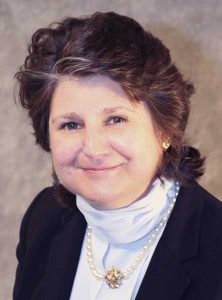 Carole E. Chaski, PhD is the CEO and President if ALIAS Technology LLC, which she founded in 2007. She also serves as the Executive Director of the Institute for Linguistic Evidence, the first non-profit research organization devoted to research and development in linguistic evidence, which she founded in 1998. Chaski began work in forensic linguistics in 1992 and is credited with pioneering the field of forensic computational linguistics. She has developed methods and software for authorship identification and classification of specific discourse types, such as threat letters, suicide notes, child sex-abuse allegations, predatory chats, and deceptive witness statements.
Carole E. Chaski, PhD is the CEO and President if ALIAS Technology LLC, which she founded in 2007. She also serves as the Executive Director of the Institute for Linguistic Evidence, the first non-profit research organization devoted to research and development in linguistic evidence, which she founded in 1998. Chaski began work in forensic linguistics in 1992 and is credited with pioneering the field of forensic computational linguistics. She has developed methods and software for authorship identification and classification of specific discourse types, such as threat letters, suicide notes, child sex-abuse allegations, predatory chats, and deceptive witness statements.
She has presented her research at universities such as Stanford, Yale, Princeton, Pennsylvania, Brown, Northwestern, Chicago, Michigan, Mary Washington, Duquesne, Bonn (Germany), Chungbuk National University (Korea), National Police University of China (China), and at conferences such as the Linguistic Society of America, the American Academy of Forensic Science, Law and Society Association, the International Academy of Law and Mental Health, the International Classification Society, IEEE Homeland Security, TALE: The Association for Linguistic Evidence, and a meeting of law firms in Greece. She has published over 50 abstracts, articles and book chapters in forensic linguistics.
Chaski held a Visiting Research Fellowship (1995-1998) at the US Department of Justice’s National Institute of Justice (NIJ). Chaski was the first person to receive Federal funding for forensic linguistic research in the USA, and she has subsequently helped other researchers win funding. During her fellowship, Chaski developed the first linguistic corpus designed for research in forensic linguistics and conducted the first empirical testing for popular linguistic methods of determining authorship of forensic texts. Chaski has served as an expert witness for cases in Federal and State Courts in the United States, in Canada and in The Hague; she has provided unrestricted testimony on linguistic issues in Federal and State courts in the USA after Daubert and Frye hearings. She was the first linguist in the United States to successfully undergo a Daubert hearing for the admissibility of authorship identification evidence based on computational linguistics. She is also the first linguist in the United States to successfully be admitted under a Frye hearing for the admissibility of evidence based on the linguistic capacity method for authorship identification and the text-typing method for discourse type identification.
Chaski earned her doctorate and master’s in linguistics (syntax, language variation and computational linguistics) at Brown University, her master’s in psychology of reading (psycholinguistics) at the University of Delaware and her bachelor’s in English and Ancient Greek from Bryn Mawr College.
Chaski is a Fellow of the American Academy of Forensic Science, Engineering Sciences Section, a Lifetime member of the Linguistic Society of America, a member of the Societas Linguistisca Europaea, a Founding member of TALE: The Association for Linguistic Evidence, an Associate member of the American Bar Association, and a member of the Association for Computing Machinery.
12:20 – 1:20 Lunch
1:20 Jim Sevel – Computer Forensics Applied to Document Examiners
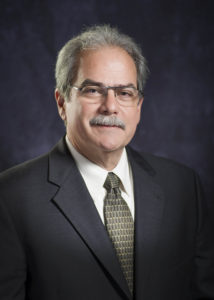 Jim Sevel is a retired Department of Homeland Security/US Customs Supervisor with thirty-two (32) years of federal law enforcement experience. He was one of the founding members of the San Diego Regional Computer Forensics Laboratory and retired in 2006 as the Supervisor of the DHS Computer Forensics and Cyber Investigations Group. He was rehired by DHS in 2008 to work computer forensic cases and retired again in 2013.
Jim Sevel is a retired Department of Homeland Security/US Customs Supervisor with thirty-two (32) years of federal law enforcement experience. He was one of the founding members of the San Diego Regional Computer Forensics Laboratory and retired in 2006 as the Supervisor of the DHS Computer Forensics and Cyber Investigations Group. He was rehired by DHS in 2008 to work computer forensic cases and retired again in 2013.
Jim started San Diego Computer Forensics in 2007 to service the civil litigation community. In April of 2014, Jim merged with Sargent Digital Forensics to form their new company San Diego Digital Forensic. Jim has over eighteen years of experience conducting computer forensic examinations and has testified in military, federal, and state courts on digital forensic issues.
2:30 Erik Laykin – e-discovery
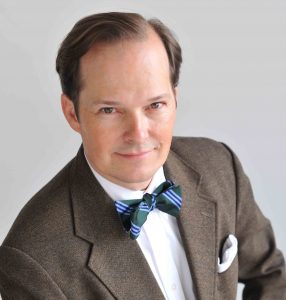 Erik Laykin, CHFI, CEDS, JMG, CFLC is a Managing Director and Founder of the Global Electronic Discovery and Cyber Investigations Practice at Duff & Phelps LLC.
Erik Laykin, CHFI, CEDS, JMG, CFLC is a Managing Director and Founder of the Global Electronic Discovery and Cyber Investigations Practice at Duff & Phelps LLC.
As an early pioneer in the cyber investigations field in the mid 1990’s he founded the first commercial computer forensic / cyber investigation labs in Los Angeles, Chicago and Hong Kong and developed cutting edge investigative techniques on behalf of multi-national law firms and corporations that are still employed today.
Erik has assisted hundreds of foreign and domestic clients on issues such as complex electronic discovery, computer forensic disputes, investigation of cyber-crime, trade secret theft, corporate espionage, systems failures and other challenging information technology disputes.
As a cyber-forensic expert, author, futurist, and Sinophile, Erik comments on emerging technology and business risks at conferences and for the media. He is Chair of the American Bar Association’s Computer Forensic Expert Witness, and IoT Digital Evidence subcommittees, President of the Los Angeles Chapter of the Forensic Expert Witness Association and is past President and Pacific-Rim Director of the FBI’s Infragard Program.
Erik newest book “Investigative Computer Forensics” was recently published by John Wiley & Sons
3:40 – Dr. Tahnee Dewhurst
Dr Dewhurst is a Senior Scientist within the Digital and Documents Evidence Branch of the Victoria Police Forensic Services Centr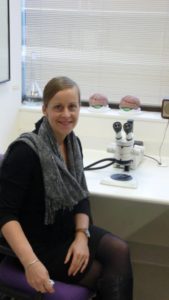 e in Melbourne, Australia. She has a Bachelor of Science with a double major in Genetics and Zoology, Honours in Animal Science, a Post Graduate Diploma in Forensic Science, and a PhD conducted within the school of Human Biosciences at Latrobe University, specialising in the dynamic characterisation of forgery behaviour as compared to genuine writings. Tahnee is passionate about education, research and training, has a Certificate IV in Training and Assessment and is actively involved in mentoring junior scientists within the industry. She has a wide range of scientific interests from biometric security feature research to cognitive sciences. Always interested in collaborative research and new ideas, she’d love to chat about your next research idea. Tahnee is a member of the American Society of Questioned Document Examiners, the Australian and New Zealand Forensic Science Society, the Australian Academy of Forensic Sciences and the Australian and New Zealand Society of Evidence Based Policing.
e in Melbourne, Australia. She has a Bachelor of Science with a double major in Genetics and Zoology, Honours in Animal Science, a Post Graduate Diploma in Forensic Science, and a PhD conducted within the school of Human Biosciences at Latrobe University, specialising in the dynamic characterisation of forgery behaviour as compared to genuine writings. Tahnee is passionate about education, research and training, has a Certificate IV in Training and Assessment and is actively involved in mentoring junior scientists within the industry. She has a wide range of scientific interests from biometric security feature research to cognitive sciences. Always interested in collaborative research and new ideas, she’d love to chat about your next research idea. Tahnee is a member of the American Society of Questioned Document Examiners, the Australian and New Zealand Forensic Science Society, the Australian Academy of Forensic Sciences and the Australian and New Zealand Society of Evidence Based Policing.
Abstract
One of the major tasks of Forensic Document Examiners (FDEs) in handwriting and signature examination casework is to compare a population of known signatures with questioned signatures, of which the authenticity is in dispute. Questioned signatures may be genuine (written by the known writer), disguised (written by the known writer for the purposes of denial) or simulated (forged by a writer other than the known writer). The opinions of FDEs, regarding the authenticity of these types of questioned signatures have been accepted in the judicial environment for well over a century, however, aspects of the skills claimed by FDEs and components of signature forgery theory remain untested, and have received both academic and judicial criticism. The body of work described here focused on: validating elements of forensic handwriting examination methodology; assessing motivational aspects of expertise testing regimes; and characterising signature dynamics associated with forgery behaviour. The results provided further empirical evidence that FDEs have a greater skill for signature examination tasks than lay individuals. The results also provided evidence regarding the types of signature formations that examiners should feel confident expressing authorship opinions on. However, it was also shown that there may be skilled forgeries that are not detected by some qualified forensic handwriting examiners and that examiners should exercise caution when viewing historically typical forgery indicators such as pen lifts in isolation. Furthermore, through the application of technology to assess above page writing instrument movements, it was shown how the implementation of advanced methodologies to detect and characterise covert features of forgery behaviour could be useful. It is concluded that the addition of objective methods of signature examination in support of FDEs’ current subjective approach, would provide a more scientifically robust platform for their investigations and subsequent forming of opinion as to the authenticity of signature formations.
